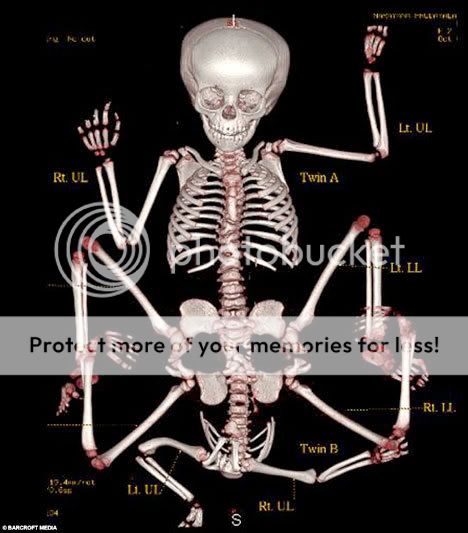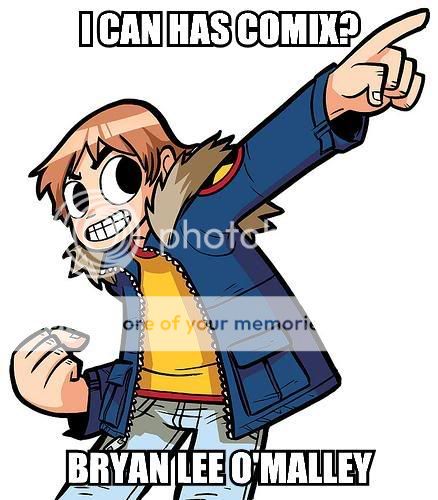As a teaser for a promised upcoming whopper of an interview, Bloody Disgusting has posted a few quotes from Clive Barker regarding the varied status of several film projects–the Hellraiser remake, the Nightbreed director’s cut, the Tortured Souls collaboration with Todd McFarlane, and the Masters of Horror/Fear Itself network transition. Check it out.
The Blogslinger: Blogging The Dark Tower, October-November 2007–Day 38
Read: Wolves of the Calla–“Secrets”; “The Dogan, Part 1”; “The Dogan, Part 2”; “The Pied Piper”
As we head toward the big showdown, we’re on an upward trend. The ka-tet finally shares its many secrets, putting an end to one of the most frustrating aspects of the book so far. Jake has one of those cloak-and-dagger lions’-den espionage expeditions that King excels at. In the process he discovers the moles among the Calla–Andy the Robot and Slightman the Elder, as suspected–and uncovers Andy as yet another piece of ancient technology gone sociopathic, like Blaine and Shardik. Computers, robots, and other machinery outliving their creators by milennia and going bad in the process is one of the eeriest and most interesting aspects of the Dark Tower mythos and it’s always fun to see another example pop up.
Meanwhile, as irritated as I am by King’s mafia-by-numbers hoodlums back in New York, and as silly as I find the idea he advances via Eddie that such men marry and breed creatures just as evil as they are (seems to me they’re more likely to be self-involved morons like A.J. Soprano or Victoria Gotti’s brood), watching Eddie get medieval on the asses of Balazar’s enforcers was the most fun I’ve had with this character ever. Of course King has to go and ruin it by forcing Eddie to explain whether or not he was bluffing about killing the goons’ families if they messed with Calvin Tower again, but at least the answer is never “yep.”
King’s refusal to divulge what’s behind the Wolves’ masks gets more obnoxious each time he makes a point of telling us the heroes know something we don’t, but it seems pretty clear by now (especially when Jake muses that their footprints will be heavy like Andy’s) that they’re mass-produced robots or cyborgs. (Now that I think of it, one of Berni Wrightson’s dopey, no-attention-to-detail illustrations kind of blew that surprise earlier, but only if you trusted his visual imagination as truth, which I didn’t considering he couldn’t even get the much-ballyhooed haircolor of the redheaded woman killing the Wolf in that scene right.) I guess we’ll find out soon enough.
Passing thought: The Tick-Tock Man didn’t really amount to much, did he? His prominent role during the big Flagg reveal at the end of The Waste Lands made him seem like he’d play a major part in the subsequent volume or volumes, but he gets iced almost instantly by the ka-tet as he works he controls during Flagg’s Oz routine. Maybe Ben Slightman the Younger will become Jake’s new archnemesis?
Our princess is in another castle
Slate’s Chris Suellentrop reviews Super Mario Bros.: The Lost Levels. It’s the original Japanese Super Mario Bros. 2 whose difficulty and, well, gamer sadism (the mushrooms are poisonous! the warp zones lead you backwards!) led Nintendo to shelve it in the States in favor of the weird sequel we know over here; it’s finally getting its North American debut on Wii.
I’ve been thinking about Super Mario a lot lately, maybe as I continue to try to wrap my head around how fresh and innovative the Scott Pilgrim series’ use of video-game style and structure feels. The other weekend I pointed out to my bemused family just how weird the video games we took in stride in our youth really are. After all, Super Mario Bros. is about an Italian plumber and his brother who battle evil mushrooms and turtles in order to rescue a princess from a dragon/turtle/dinosaur thing, and in the process use stars to become invincible, flowers to breathe fire, and raccoon ears and tails to fly. That’s freaking bizarre, and yet my entire generation treats it all like common sense. These are hardly the most original observations, I know, and I’ve actually never been that much of a gamer so I’m barely equipped to address this stuff at all, but it just seems to me like this is an unbelievably rich vein to mine, at least as fruitful as some of the all-time great weird ideas like “rich orphan dresses up as bat to fight crime” and “invincible alien has ugly stupid backwards-speaking clone.”
The Blogslinger: Blogging The Dark Tower, October-November 2007–Day 37
Read: Wolves of the Calla–“Took’s Store; The Unfound Door”; “The Priest’s Tale Concluded (Unfound)”
After a bit of thrilling ordering-stuff-in-a-general-store action and another interdimensional warp zone, we come to the conclusion of Father Callahan’s story. Again I’m struck by how well his would have stood on its own, and probably would have but for King’s post-car-accident Dark Tower mania. I’m also struck by how tightly my interest in reading these books is tied to treating them as Marvel Handbooks–finding out the connection between the vampires and the low men and the Big Coffin Hunters and Flagg and Sayre and the Crimson King and so on without caring so much as to how that information is presented. Speaking of, this section really seems to be the first where my failure to have read any King books more recent than The Dark Half is an impediment to picking up all or even most of the references he’s making to his books’ shared world. I’ll live, but it’s quite clear that the Dark Tower series are King books for King fans.
PS: Jake really should have told Roland and the gang about Andy the robot’s late-night rendezvous with Slightman Sr. Why wouldn’t he?
Pictures of the day
It takes a few moments to notice the dent in Sgt. Dan Powers’ head, a place where he was stabbed with a nine-inch blade while patrolling the streets of the Iraqi capital.
–Jennifer Pifer, “Soldier survives bizarre injury thanks to heroics and a bit of tech,” CNN.com
Lakshmi Tatma was born joined to a ‘parasitic twin’ and will go under the knife at the hands of 30 surgeons to remove two of her useless arms and legs.
—“Toddler with eight limbs branded ‘reincarnation of Hindu god’ to undergo life-saving operation,” ThisIsLondon.co.uk
Favorite with a u
Like Jon Hastings before him, Steven Wintle at The Horror Blog gets on my illustrated favorite horror movies list tip–only he presents his as a quiz. Fun for the whole family!
Quote of the day
Well, I know that the apocalyptic imagination is usually a lack of imagination; it refuses to face the dull prose of suffering, refuses to understand just how bad things can get without history coming to an end. Empires can limp on for centuries.
Referring to apocalyptic worldviews, not apocalyptic fiction, of course.
(Via Kevin Huizenga.)
HaloweeNSFW
I’ve been around the block a few times when it comes to scary stuff, so I’d like to think it’d really take some doing to come up with a Halloween costume that would genuinely give me the creeps. Kudos, then, to this young lady. This is seriously impressive.

Found here and here, via Blue States Lose.
The Blogslinger: Blogging The Dark Tower, October-November 2007–Day 36
Read: Wolves of the Calla–“Gran-Pere’s Tale”; “Nocturne, Hunger”
Again I question the wisdom of presenting so much important information through people sitting around and talking about it decades after the fact. Kinda leeches some of the excitement from the proceedings, no? But what’s worse is how this technique makes the big cheat in this section–King keeping Gran-Pere’s revelation to Eddie of what lies beneath the Wolves’ masks a secret from the reader–seem like an even bigger cop-out than it already is. To have so much vital plot development come out in this way, only to hide the most vital development of all from we the readers, simply makes it crystal clear that this is a decision made by an extradigetic author for no other purpose than to wring more drama out of the proceedings than he otherwise could. It’s almost insulting. It makes me hope that Jake is right an the ka-tet is falling apart, so that maybe we can clear the deck of these losers and get back to basics. Or maybe just out of spite.
Misty watercolored memories

This week’s Horror Roundtable is about our first horror-movie memories. Mine’s pretty rad.
The Blogslinger: Blogging The Dark Tower, October-November 2007–Day 35
Read: Wolves of the Calla–“The Pavilion”; “Dry Twist”; “The Priest’s Tale (New York)”; “The Priest’s Tale Continued (Highways in Hiding)”; “The Tale of Gray Dick”
I find I have a hard time articulating exactly what I mean by “bloat” in the context of these books, but this section is maybe the best example yet. Essentially what you have here is a book within a book, a story that could easily have been its own, completely unrelated Stephen King novel. (Or at least as “completely unrelated” as any two Stephen King novels are anymore.) Finding out what happened to Father Callahan after he wandered out of ‘Salem’s Lot, infected and de-consecrated by the vampire Barlow’s blood, is a wonderful idea for a story, and not even King’s strange insistence on having so much of his action happen in the past as recounted by the character involved rather than unfolding in the present moment before our eyes sucks the wow out of it.
And it’s not just the very basic idea that’s cool. The hierarchy of vampirism that Callahan uncovers, the mysterious and frightening presence of these “low men” who serve the mysterious big bad the Crimson King (like I said, not quite completely unrelated) and are hunting him for his actions against the vampires, the super-creepy moment he realizes that the graffitti and lost-pet signs around his hang-outs are actually messages posted by his pursuers to pinpoint him–all of that is absolutely fascinating. Callahan’s ongoing struggle with alcoholism and his Kissing Jessica Stein relationship with his friend at the homeless shelter are even on hand to provide the standard King human element.
Slapping all of this into the middle of a Dark Tower book has the dual effect of making Callahan’s story feel somehow undercooked and unfinished, and making the main narrative feel lopsided and elephantine. It’s still fun material, but I don’t see how it or the larger Wolves of the Calla story benefit from the way it’s inserted here instead of standing between its own two covers. I’ll burn through the chapters until we get to the conclusion of Callahan’s story, no doubt, but that’s kind of a problem, isn’t it?
The State collapses
* * * NOTE (Nov 1, 2007): We are sorry to report The State DVD is now NOT being released this fall. We worked closely with MTV to make a great DVD set with lots of extras for the show, and the DVDs are completed, but they has chosen not to release the set at this time. We don’t know why.
—statement at the official State website
Take it away, 30 Days of Night vampire atheist!
Scrooged, even
Jon Hastings at The Forager takes a cue from my illustrated favorite horror-movie list and presents his own. It’s bigger (50!), it eschews the “horror” label to encompass scary movies that might not fit within the genre, and though he doesn’t come out and say it I think it’s even ranked in order of preference.
May I humbly suggest that if you enjoyed his or mine and have a blog, you post your own?
The Blogslinger: Blogging The Dark Tower, October-November 2007–Day 34
Read: Wolves of the Calla–“The Way of the Eld”; “Todash”
You could probably look at this section as an illustration of how bloat affects these books. During their palaver with the Calla’s representatives, and again during their todash journey to NYC77, each member of Roland’s ka-tet is given a sentence or two to ponder or comment upon nearly everything that’s said, done, or seen. Even the neutral narrator takes too long to get to the meat of the story, wasting time on unnecessary and uninteresting details. I’m not sure we needed to know that the plates Roland had Jake use to show off his targeting prowess were still greasy, you know? Normally I’d support that kind of attention to detail, but the book fairly groans under the weight of all that accumulated minutiae.
An abridged version might have cut to the chase, and given these chapters’ standout sections a little more space to shine. For those keeping track at home, those standouts included Roland’s todash flashback to the battle of Jericho Hill, the last stand of the gunslingers. In a thrilling “Charge of the Light Brigade”-type sequence, we learn how Roland’s pals Alain and Jamie De Curry bought it, we see Cuthbert take his fatal wounds and still insist on going down shooting and cracking jokes, and we get the pretty glorious image of Roland leading his surviving troops in a suicidal charge against the enemy (“the barbaric remnants of Farson’s forces” or something to that effect, implying that Flagg/Fannin/Farson/Marten/Walter/Man in Black/Dark Man/Good Man/Ageless Stranger/Walkin Dude/Wizard/Maerlyn/Legion/etc. had already buggered off, abandoning his followers now that the main work of destroying civilization had been accomplished) while screaming “NO PRISONERS! NO PRISONERS!” That’s pretty much the Roland I want to see.
The other highlight was the Calla residents’ description of what happens to the roont twins when they’re sent back by the Wolves. The most horrifying aspect is how the poor kids grow from child-size to over seven feet tall in the span of a year to a year and a half. The process, vividly described as like teething for their whole bodies, leaves them screaming and crying in near-constant agony, which their ruined brains can’t possibly process. Now, this is the kind of thing it might have been better to be shown rather than told during palaver, but aside from that it’s pretty nightmarish, one of the first genuinely horrific images these books have conjured up in a long time. It’s also a key to really appreciating Tian Jafford’s desperation, and to hating the Wolves something fierce. That should help sustain me through the fallow periods before we finally get to see Roland charging the bastards, screaming “NO PRISONERS! NO PRISONERS!”
“Pilgrim‘s Progress” lost the coin toss
I interviewed Bryan Lee O’Malley about his new book Scott Pilgrim Gets It Together (Volume Four in the Scott Pilgrim series) and you can find the results at Comic Book Resources. WIN!
(Pictured: What might have been.)
Carnival of souls: wrap-up
I don’t think Steven Wintle at The Horror Blog has gotten nearly enough attention for his series of mini-interviews called Scarred, in which horror notables from Anne Rice to Judith “They’re coming to get you, Barbara” O’Dea share their memories of some work of art or fiction that frightened them. So I’m doing my part.
Using a charmingly democratic process, Shoot the Projectionist has assembled its list of 31 Flicks That Give You the Willies, which is another way of saying the best horror movies of all time. Interestingly for a list assembled from the votes of film buffs and horror fans, it has a lot more in common with AOL/Moviefone’s general-audience countdown than it does with Richard Corliss’s showoffy Time list.
The Blogslinger: Blogging The Dark Tower, October-November 2007–Day 33
Read: Wolves of the Calla–“Overholser”
I didn’t read much and don’t have a whole lot to say about what I read, other than the more of the made-up lingo and speech patterns King gives us, the more I enjoy it. It comes so natural! Say thankya, I beg, if it do ya fine…I totally want to throw these onto the ends of all my sentences. This is actually quite an achievement on King’s part, because anyone who remembers reading Spider-Man 2099 as a high-schooler will tell you that invented dialect is just a “what the shock?” away from complete insufferability.
Aside from that I had two insights:
1) For a while now I’ve been giving myself a hard time for giving King such a hard time about this 19 business. You may not know this about me, but the use of the 23 enigma and the Law of Fives in The Illuminatus! Trilogy blew my goddamn mind and was a philosophical and even political touchstone of mine for years. It was also just plain entertaining as hell to read. Isn’t King just doing the same thing? The answer is no, because RAW and Shea didn’t just slap a number into their books out of nowhere–they dug up every conceivable iteration of 23 and 5 (and sometimes 17) in the real world, and used that as the springboard for their characters’ birthdays and the number of potential ways to immanentize the eschaton and so forth. Doing that is a far cry from being all “wow, this supporting characte’s’ name is 19 letters long!” as though you, the author, had nothing to do with that.
2) I want to finish these books so I can find out how it all plays out, but honestly I think I could read the wikipedia entries and find that perfectly satisfying in terms of the main reason I’m reading this series, which is to unearth the secrets behind King’s cosmology.
Blab away
Comments seem to be working even on old posts now, so go ahead and put in your two cents. Woo!
The Blogslinger: Blogging The Dark Tower, October-November 2007–Day 32
Read: Wolves of the Calla–“Mia”; “Palaver”
Wow, November. I’m starting to feel like Roland. Who apparently has been at this whole “quest for the Dark Tower” thing for 1,000 years, which is lame because it busts the scale of his journey wide open and spills his mortality all over the floor. It’s fine that time is wonky, but you still need to place your hero’s life against the backdrop of a finite span of years or else his quest loses any sense of urgency. I’m certainly not the first person to point out that immortality has this effect. I know Roland’s not really immortal, but same difference.
Also in the “oh brother” category for this section: yet another obnoxious split personality for Susannah, although at least this one has the decency to slither around naked and covered in mud while eating small animals alive; the revelation that Roland and Company’s Fistful of Dollars reenactment in the Calla will be interspersed with thrilling New York City real-estate acquisition action in the Mighty Maine-Man Manner; and oodles of self-congratulatory there’s-no-such-thing-as-a-coincidence synchronicity. While the first two faults are probably more troubling in the long run because they indicate a fundamental misunderstanding of what is interesting about these books on the part of their author, it’s the third that irritates the most at the moment. Look, it’s really not that impressive that the number 19 keeps popping up–Stephen, you’re the one making that happen. Shit, you re-released the previous four books in large part so you could slap that number after the table of contents. Same thing with the name of the big-shot farmer in the Calla being the same as a Western author the bookstore owner mentioned to Jake two books back–Stephen, you named the character that! It’s all so transparently forced; none of it creeps up on you from between the cracks in the text like these sorts of mystical coincidences are supposed to do.
I remember the first time I read a book and realized not just that I didn’t like it, but that it was poorly written. It was a Kevin J. Anderson Star Wars novel in which Luke or whoever really needed to find potential Jedi to train. Any guesses as to whether an amazing ancient Jedi-detector device gets found within a few chapters? Home runs are a lot less impressive if they’re clearly the result of tee-ball.
Trick or treat!
How’s this for a treat–don’t quote me on this, but I think my comments are working again!
(At least for new posts. It LOOKS like you can comment on old ones, but you can’t. Still, good enough, right?)




